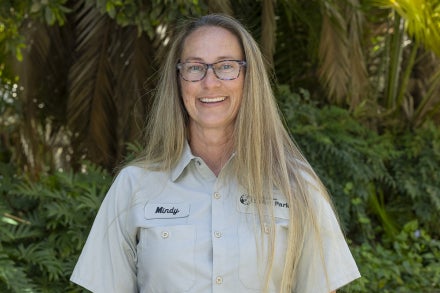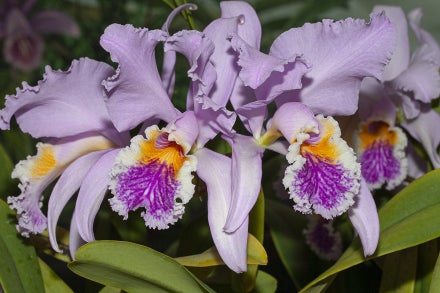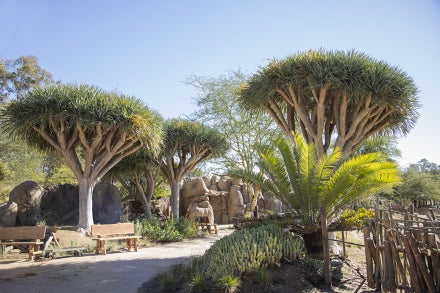
March 17 event marked the largest reintroduction of the species in the San Diego region, building on efforts by San Diego Zoo Wildlife Alliance and key partners in restoring the population.
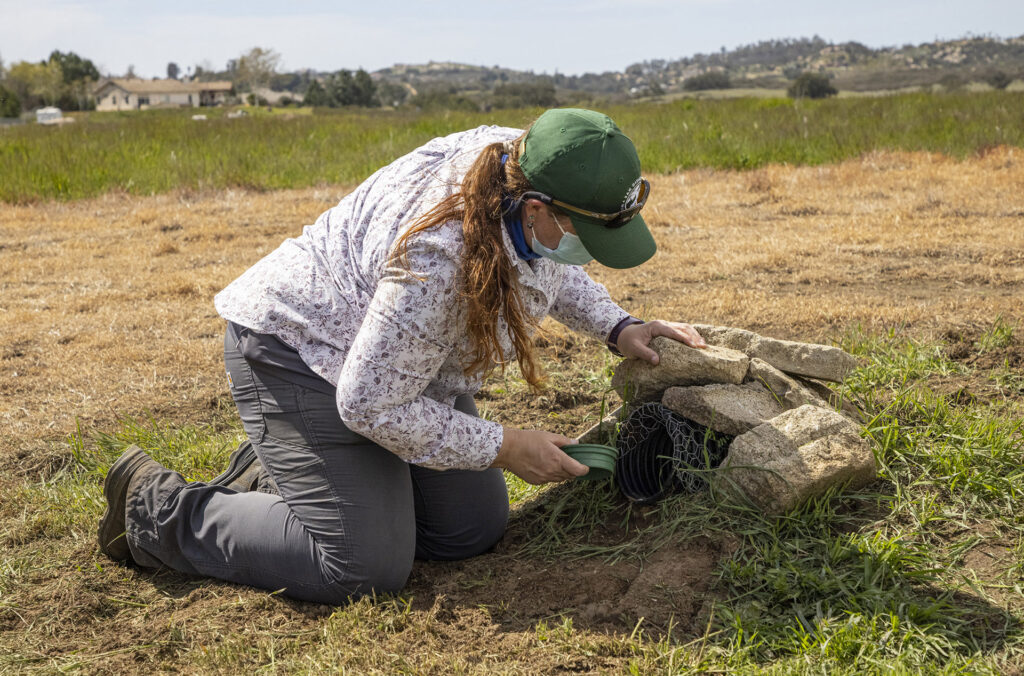
SAN DIEGO (March 17, 2021) – San Diego Zoo Wildlife Alliance team members gathered with Ramona residents and representatives of natural resource agencies to welcome some new neighbors to the Ramona grasslands: 24 western burrowing owls. The ground-dwelling raptors, which hatched at the San Diego Zoo Safari Park, were reintroduced to a swath of suitable habitat preserved as part of the Regional Multiple Species Conservation Plan and managed by the San Diego Habitat Conservancy (SDHC).
Native to western North America, resident populations of burrowing owls are very rare in San Diego County. A resident breeding population has not been documented in the Ramona area in recent history, though the grasslands provide prime habitat with underground burrows and abundant prey. The reintroduction is part of a larger effort in the county that involves many partners, including the U.S. Fish and Wildlife Service (USFWS), California Department of Fish and Wildlife (CDFW), San Diego Zoo Wildlife Alliance and SDHC.
“This project is another example of the U.S. Fish and Wildlife Service’s long history of partnering with San Diego Zoo Wildlife Alliance to conserve San Diego County’s native species,” said Scott Sobiech, field supervisor at the Service’s Carlsbad Fish and Wildlife Office. “We cannot accomplish our mission without our valued partners.”
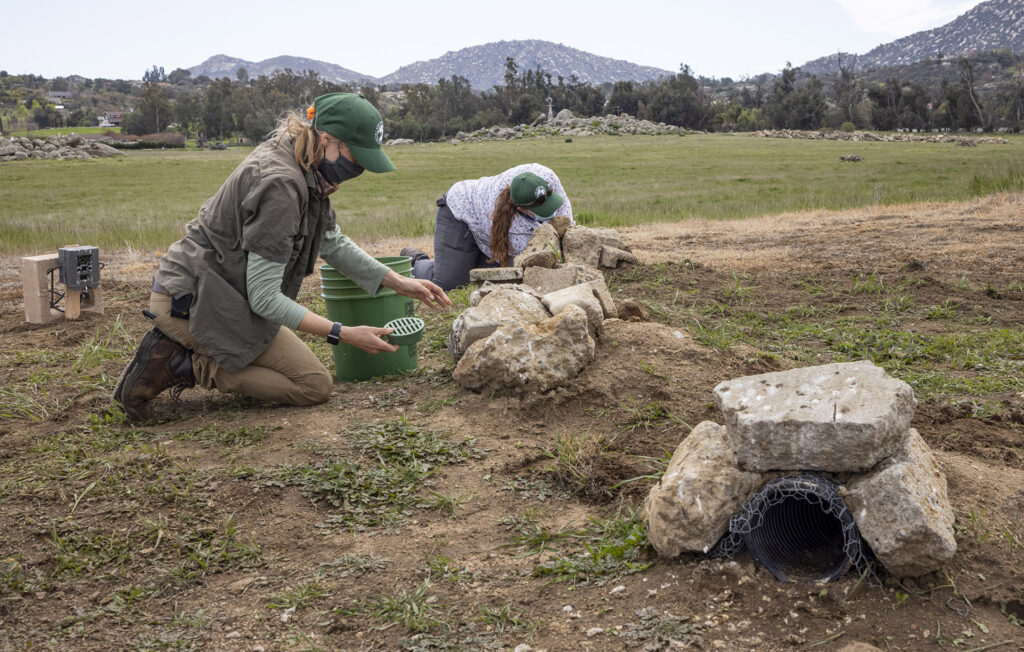
“Actions like this are why we do what we do,” said Don Scoles, executive director of SDHC. “This is the perfect example of how planning and implementation of regional conservation goals has enabled SDHC to be ready to take this colony and manage the land specifically for the burrowing owls for generations to come.”
Before March 17, 2021 reintroduction, the birds acclimated to the environment inside aviaries. As representatives from the organizations looked on, the temporary structures were removed, completing the owls’ reintroduction. While there are no guarantees the birds will remain in Ramona and start a resident population, San Diego Zoo Wildlife Alliance and SDHC staff will continue to monitor and support the owls that remain through supplemental feeding and other management actions.
“We are delighted to be able to bring a species to the Ramona area that will serve to enrich the grasslands area,” said Colleen Wisinski, wildlife recovery expert with San Diego Zoo Wildlife Alliance. “I am certain that these adorable owls will become celebrities and a beacon of hope in this region – being watched over by the community and everyone who loves birds.”
Standing around 10 inches tall with a 2-foot wingspan, western burrowing owls are the only ground-dwelling owl on the continent. The owls often take over burrows from other species that dig holes (like ground squirrels) to use as their nest burrows. Insects and small rodents serve as their main food sources.
This reintroduction extends San Diego Zoo Wildlife Alliance’s efforts to restore western burrowing owls to the Southwest region. Numerous burrowing owls have been moved out of development footprints and reintroduced in protected areas that can be managed to support them. In San Diego County, there was only a single breeding population, in Otay Mesa. Over the past few years, San Diego Zoo Wildlife Alliance has worked with partners to establish a new breeding population at the Rancho Jamul Ecological Reserve, managed by CDFW. This effort appears to be a success in the making, and the population continues to grow as reintroduced owls remain on site and produce offspring. It is hoped that this success can be repeated at Ramona grasslands, adding a third population of this endearing and iconic grassland species and helping to secure their future in Southern California.
Anyone with a computer or smartphone can help researchers better understand burrowing owls and improve conservation outcomes by participating in Wildwatch Burrowing Owl. Motion-sensing cameras collect images of owl families in Otay Mesa that citizen scientists can help classify. This serves a critical research function that informs science-based solutions for their recovery.
For an owl-eyed view into a burrow, tune into the Burrowing Owl Camstreaming from the San Diego Zoo Safari Park.
About San Diego Zoo Wildlife Alliance
San Diego Zoo Wildlife Alliance is a nonprofit international conservation leader, committed to inspiring a passion for nature and creating a world where all life thrives. The Alliance empowers people from around the globe to support their mission to conserve wildlife through innovation and partnerships. San Diego Zoo Wildlife Alliance supports cutting-edge conservation and brings the stories of their work back to the San Diego Zoo and San Diego Zoo Safari Park—giving millions of guests, in person and virtually, the opportunity to experience conservation in action. The work of San Diego Zoo Wildlife Alliance extends from San Diego to strategic and regional conservation “hubs” across the globe, where their strengths—via their “Conservation Toolbox,” including the renowned Wildlife Biodiversity Bank—are able to effectively align with hundreds of regional partners to improve outcomes for wildlife in more coordinated efforts. By leveraging these tools in wildlife care and conservation science, and through collaboration with hundreds of partners, San Diego Zoo Wildlife Alliance has reintroduced more than 44 endangered species to native habitats. Each year, San Diego Zoo Wildlife Alliance’s work reaches over 1 billion people in 150 countries via news media, social media, their websites, educational resources and the San Diego Zoo Kids channel, which is in children’s hospitals in 13 countries. Success is made possible by the support of members, donors and guests to the San Diego Zoo and San Diego Zoo Safari Park, who are Wildlife Allies committed to ensuring All Life Thrives.
About San Diego Habitat Conservancy
San Diego Habitat Conservancy is a nationally accredited land trust working since 2004 to acquire, manage and protect land that supports sensitive habitats and species. SDHC’s mission is to conserve and manage sensitive habitats and species while inspiring land stewardship through education and outreach. The vision is a healthy, natural environment that engages the commitment of people and communities, creates a legacy and improves the quality of life for all living things. SDHC now manages 31 preserves totaling almost 2,000 acres in San Diego County.


